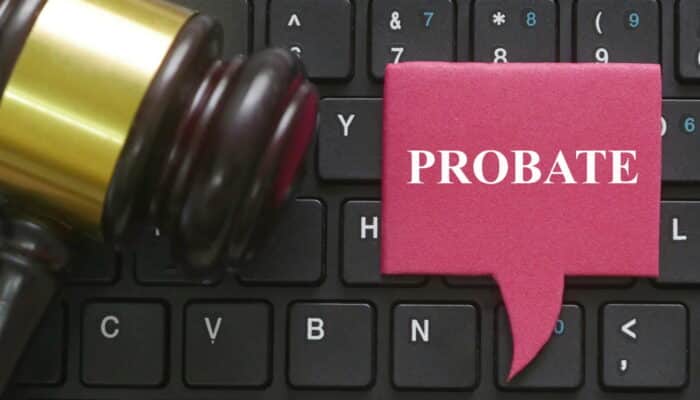As previously reported, Powers of Attorney (POA) are prepared under state law and are not necessarily binding on federal agencies. These agencies have their own forms, rules, and regulations.
Again, it is noted that the Social Security Administration does not honor durable powers of attorney.
When it comes to managing a loved one’s veterans’ benefits, there is yet another process that caregivers must go through regarding the U.S. Department of Veterans Affairs (VA).
Medicare cannot provide personal health information to a caregiver unless the beneficiary has submitted written authorization to the Centers for Medicare & Medicaid Services (CMS) or provided verbal permission over the phone, Medicare beneficiaries may be able to answer basic questions verbally thereby granting their caregivers authorization to discuss coverage details as well as having a standing authorization on file with Medicare is a better practice.
The Office of Personnel Management and the Railroad Retirement Agency also appoint representative payees and the responsibilities are virtually the same.
Family caregivers as well as parents should have POAs and other documents to prove they are legally authorized to access sensitive or confidential information, speak with important entities and/or medical providers and make decisions about a loved one’s finances and/or care and or act on another’s behalf.
As for obtaining or renewing a passport for a minor child when the other parent is unavailable certain government forms are needed as follows.
Passports for minors aged 15 or younger require the consent of both parents unless one parent has sole legal custody. If a parent has sole legal custody, then the other parent’s consent would not be necessary.
Minors ages 16 and 17 can apply without the presence of their parents. Parental consent may or may not be requested. Passports for applicants sixteen (16) and older are valid for ten (10) years.
The U.S. Department of State Passport Services requires both parents to appear to get a passport for a minor child aged fifteen (15) or less. Passports for children under age sixteen (16) are only valid for five (5) years.
In cases where only one parent appears, the applying parent must submit either a notarized consent from the non-applying parent or proof of sole legal custody.
If one parent/guardian cannot go with the child to apply for the passport, they can provide permission by completing Form DS-3053 “Statement of Consent.” The completed form must be submitted with the child’s passport application.
Special circumstances when one or both parents cannot be present, include Form DS-3053, whichmay be used for many instances when either or both parents can be with their child for their passport application, but others fall under Form DS-5525, Statement of Exigent/Special Family Circumstances. If one parent is in prison, subject to a restraining order again the other parent or child, or subject to custody order which leaves them unable to sign DS-3053, then Form DS-5525 may be used.
One parent may also have sole custody of their child; a court order to this affect must be provided with DS-3053. Basically, if any legal guardian of the child is unable to appear in person, then there must be legal documents included with the passport application form.
There are custody situations when it is not possible for both parents to appear in person during the submission of the passport application. Depending upon the basis, a parent may be required to provide additional documents that prove they have the authority to apply without the consent of the other parent.
- If a parent has sole legal custody, they can submit certified copies of the following types of documents:
- Full court order that grants a parent sole legal custody or that specifically states they have legal permission to apply for their child’s passport;
- The child’s birth certificate or adoption decree on which there is only parent listed or named;
- Certified copy of an adoption decree listing one person as the only parent;
- A court order that the other parent is incompetent; and
- A death certificate of the other parent.
- If both parents have legal custody but one cannot appear, that parent can give permission for the other parent to apply by completing Form DS-3053, Statement of Consent:
- Sign the form in front of a notary in the U.S. or at a U.S. consulate or embassy, and
- Submit a copy of the front and back of the ID provided to the notary.
- If one parent cannot locate the other parent you must submit form DS-5525, Statement of Exigent/Special Family Circumstances; and
- Make Sure One’s Divorce Decree or Final Judgment of Dissolution of Marriage, etc., is Clear About Custody and Any Travel.
A parent may need a court to intervene if there is no prior court order or written parental contract that addresses international travel. A parent may want a court to establish specific travel protocols, such as authority to obtain a passport for a child, or to impose travel restrictions on a parent who is threatening to remove a child outside of the United States.
Depending on the circumstances, a court order may include:
- an award of sole legal custody of a child;
- protocols to obtain or renew a passport;
- requirement that the non-traveling parent sign a notarized statement and other forms permitting the child to travel;
- prohibition on a parent traveling abroad with the child without prior court approval;
- supervised visitation with the child;
- that a foreign embassy or consulate not issue any new passports to a foreign national parent and the child, if applicable;
- requirement that the passports of a foreign national parent and the child be held by a third party or in the court registry;
- requirement that a foreign national parent notify his/her country’s embassy consulate of the order prohibiting a new or replacement passport for the child.
If a parent refuses to follow the terms of a parenting plan or custody agreement, such as provisions related to traveling with children, the other parent can sue to enforce the contract. Similarly, if a parent fails to comply with an order, then the noncompliant parent can be found in contempt of court and subject to civil and criminal penalties. Under some circumstances a parent may be forced to seek an emergency order if his or her travel is imminent. It is always better if parents can cooperate.
The website Tavel.state.gov explains what is needed when a parent is unavailable or in the military, and there is a specific form the said parent needs to complete to get the passport for their minor child.
Again, all children under age 16 must apply for a passport in person with two parents or guardians using Form DS-11. A child’s passport cannot be renewed using Form DS-82. Passports for children under age 16 are only valid for 5 years.
One must submit documentation that lists the parent(s) or legal guardian(s) of the child applying for a passport.
The following may be used to show parental relationship:
- U.S. birth certificate (also evidence of U.S. citizenship)
- Consular Report of Birth Abroad or Certification of Birth (also evidence of U.S. citizenship)
- Foreign birth certificate
- Adoption decree
- Divorce/Custody decree
Some documents, like a U.S. birth certificate, show both U.S. citizenship and parental relationship. These documents must be originals or certified copies (not photocopies).
Both parents/guardians must authorize the issuance of the child’s passport. The best way to do this is for both parents/guardians to go with the child in person to apply for the passport.
When both parents/guardians who are civilians cannot appear in person, the procedure is described above.
However, if the non-applying parent is deployed by the military, he or she should be able to provide a notarized Form DS-3053 in most cases. In the rare case that the non-applying parent cannot be contacted, the applying parent must provide either military orders with a Form DS-5525 showing the non-applying parent cannot be contacted due to the fact that they are on a special assignment for more than 30 days outside of their duty station or a signed statement from the non-applying parent’s commanding officer that the military parent cannot be reached.
A third party may apply for the child’s passport with a Form DS 3053 or a notarized statement from both parents/guardians giving that third party permission to apply for the child. The statement must include a photocopy of the parents/guardians’ identification.
When the statement is from only one parent/guardian, the third party must present evidence of sole custody of the consenting parent/guardian giving that third party permission to apply for the child.
A written authorization from the parent that cannot appear in person must be less than three (3) months old.
Further, no child under age 16 is eligible to mail in a passport application. Additionally, a parent cannot apply online for the subject child’s passport.
In certain countries, a DS-3053 must be notarized at a U.S. embassy or consulate and cannot be notarized by a local notary public. Currently, these countries include:
| Afghanistan | Indonesia | Pakistan |
| Algeria | Iran | Panama |
| Angola | Iraq | Philippines |
| Bangladesh | Jamaica | Saudi Arabia |
| Bulgaria | Kenya | Senegal |
| Cambodia | Kuwait | Sierra Leone |
| Cameroon | Laos | Somalia |
| Central African Republic | Lebanon | Sudan |
| Cote d’Ivoire | Liberia | Syria |
| Dominican Republic | Libya | Tajikistan |
| Egypt | Mali | Trinidad and Tobago |
| Equatorial Guinea | Mauritania | Uganda |
| Ethiopia | Mauritius | Ukraine |
| Gabon | Moldova | United Arab Emirates |
| Guatemala | Nepal | Venezuela |
| Guinea | Nicaragua | Vietnam |
| Haiti | Nigeria | Yemen |
| Honduras | North Korea |
In addition, parents may enroll their U.S. citizen children under the age of eighteen (18) in the Children’s Passport Issuance Alert Program (CPIAP), one of the Department of State’s most important tools for preventing international parental child abduction. If a passport application is submitted for a child who is enrolled in CPIAP, the U.S. government tries to alert the parent or parents to verify whether they approve the passport issuance.
Consequently, parents must be prepared with the proper legal documents when applying for or renewing a passport for their minor child in order to avoid problems or delay with the process.
If you should have any additional questions or would like to discuss your situation, concerns, and needs, please call an Attorney at CASERTA & SPIRITI.










